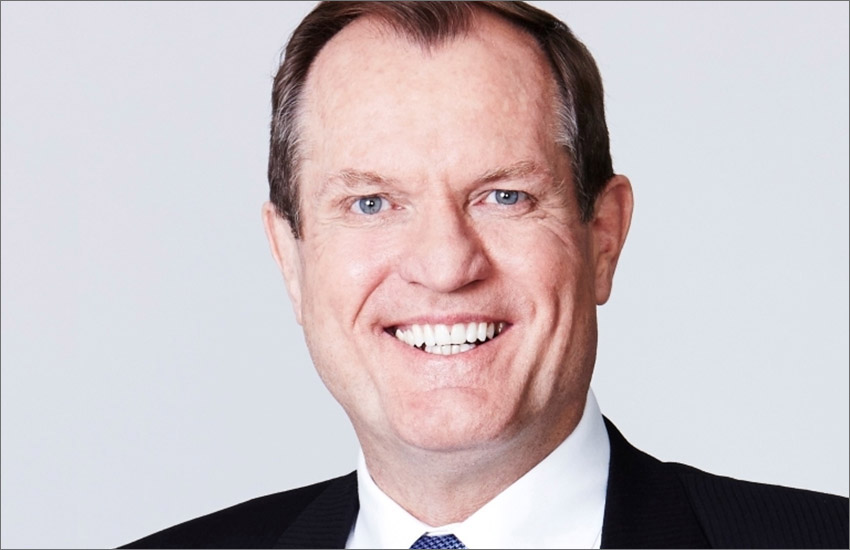Speaking at the 14th International ATAX Conference on Tax Administration on 23 November, Commissioner of Taxation Chris Jordan addressed what he believes are the biggest challenges that lie ahead in tax administration.
"While we can’t know for sure what the next 10 years will hold, we do know that to keep pace with the world around us we will need to continue to utilise digital and data to support taxpayers and encourage willing compliance in an environment where we are increasingly asked to do more with less," Mr Jordan said.
You’re out of free articles for this month
"As the saying goes, ‘the future is now’ and nothing is truer in the post-pandemic world of tax administration, where we have seen rapid change across all aspects of life, and the community expects even more from us."
Cyber security threats
One of the primary challenges affecting tax administration in the coming years will be growing threats to cyber security, according to Mr Jordan, who noted the ATO must continuously safeguard its data.
"We possess one of the largest and most comprehensive data stores in Australia. We are entrusted with protecting the community’s personal information and this trust underpins the whole tax system. Protecting our data and digital systems is a massive undertaking and a responsibility we take very seriously," Mr Jordan explained.
"We defend against more than two million attempted cyber intrusions each month, and in peak months this will rise to over 3.5 million intrusion attempts.
"... We have implemented strong and robust cyber security measures, which are a crucial part of defending the very complex and sensitive systems we administer, and we are continually reviewing how we can leverage new patterns and technologies. This includes using behavioural analytics to support our insider threat identification processes, and using artificial intelligence and machine learning to improve early identification of cyber threats."
Globalisation of business
The increasing globalisation of business adds another layer of complexity for tax administrators, according to Mr Jordan, who said "it demands appropriate responses through continuing growth in the scale and scope of international co-operation".
"Sharing knowledge and data between tax administrations and key stakeholders in financial systems has never been more important as the global economy continues to grow exponentially across all borders and jurisdictions," Mr Jordan said.
"The Joint International Taskforce on Shared Intelligence and Collaboration (JITSIC) brings together 42 national tax administrations and has been instrumental in tackling international tax evasion since its formation seven years ago.
"We also have numerous tax treaties and agreements to support collaboration, and a key role in the Joint Chiefs of Global Tax Enforcement (the J5). Our Deputy Commissioner Will Day is one of the five chiefs that heads up the taskforce and is joined by leaders of tax enforcement authorities from Canada, the Netherlands, the United Kingdom and the United States to increase collaboration in the fight against international and transnational tax crime and money laundering."
In addition to this and the ATO taking action on the Pandora Papers, Mr Jordan said the Tax Office is also working together with its OECD partners to take on strategies used by multinational companies to exploit gaps and differences between the tax rules of different jurisdictions internationally.
"In October, a minimum global level of corporate tax of 15 per cent was agreed to and will redirect some of the taxes that large multinationals pay to the countries where their products or services are sold, instead of the taxes going only to the country they’re headquartered in," he explained.
"This move is important because we need to stop multinational corporations from shifting their profits to low-tax countries. It is also important because it goes back to one of the key barriers to willing compliance. If individuals think large corporates get away with not paying their fair share, then why should they? Everyone needs to pay the right amount of tax in Australia."
Cryptocurrency and other digital platforms
As more look to take up the opportunity cryptocurrency is presenting, in addition to greater use of digital platforms, so too does the ATO in ensuring it has adequate processes in place.
"A greater use of data and digital not only empowers us, it empowers our clients. It improves taxpayers’ capability when it comes to managing their own tax and super affairs and it improves the information tax professionals have available to them when helping and advising their clients," Mr Jordan said.
"We receive, match and pre-fill increasingly large volumes of data from a variety of third-party providers. In 2021, we pre-filled over 89.5 million pieces of data and we’ve expanded our data matching protocols to get more data from third parties to assist with emerging investments like cryptocurrency.
"In a sector that is growing rapidly with new investors, we can’t rely on taxpayers knowing they need to keep records of their investment income and capital gains and disclose it on their tax returns. Acquiring data from sources like Cryptocurrency DSPs, share registries and brokers, and pre-filling this data to prompt clients when they lodge means we raise awareness of their responsibilities when it matters most."

 Login
Login







